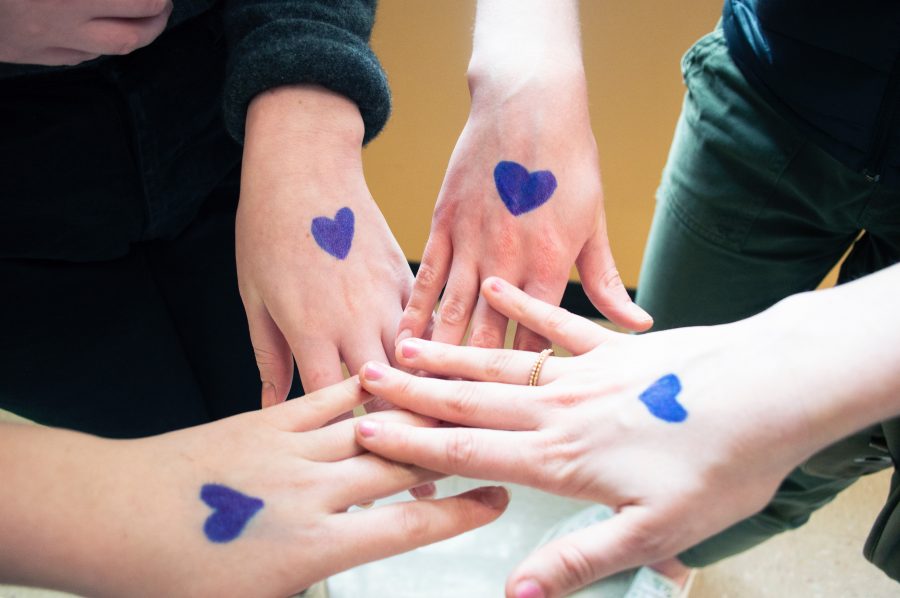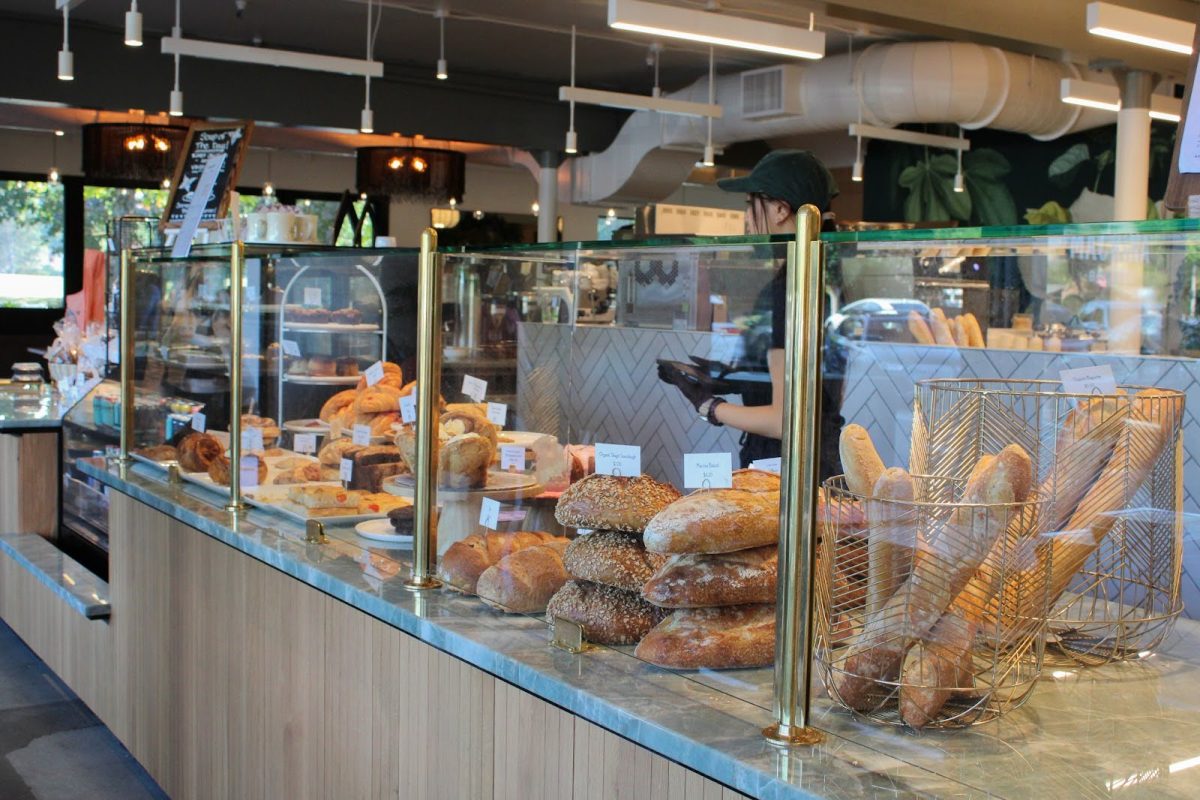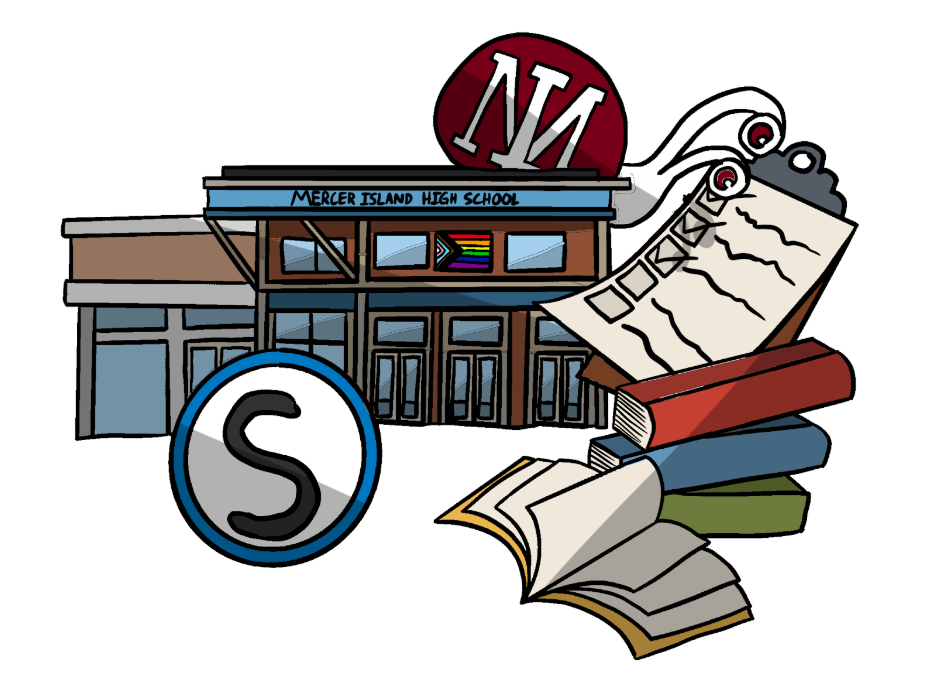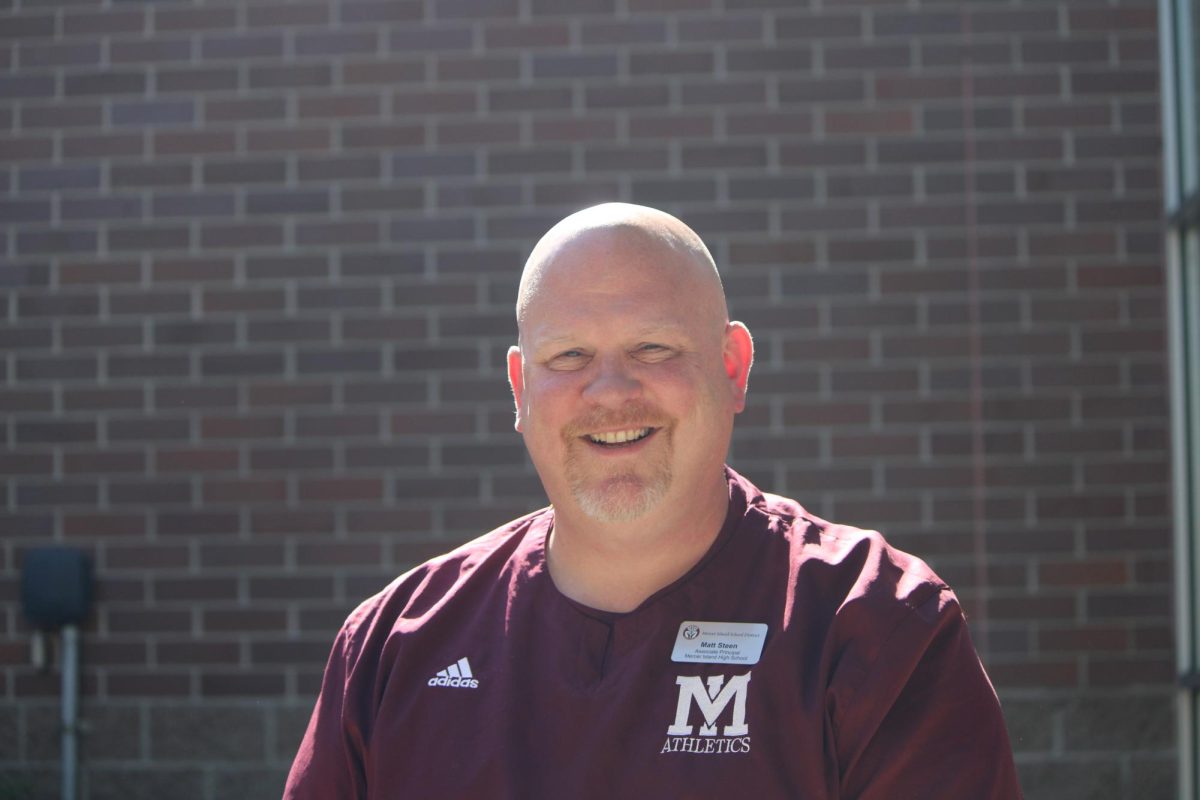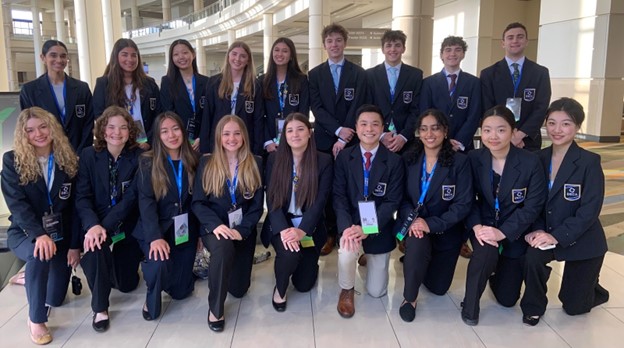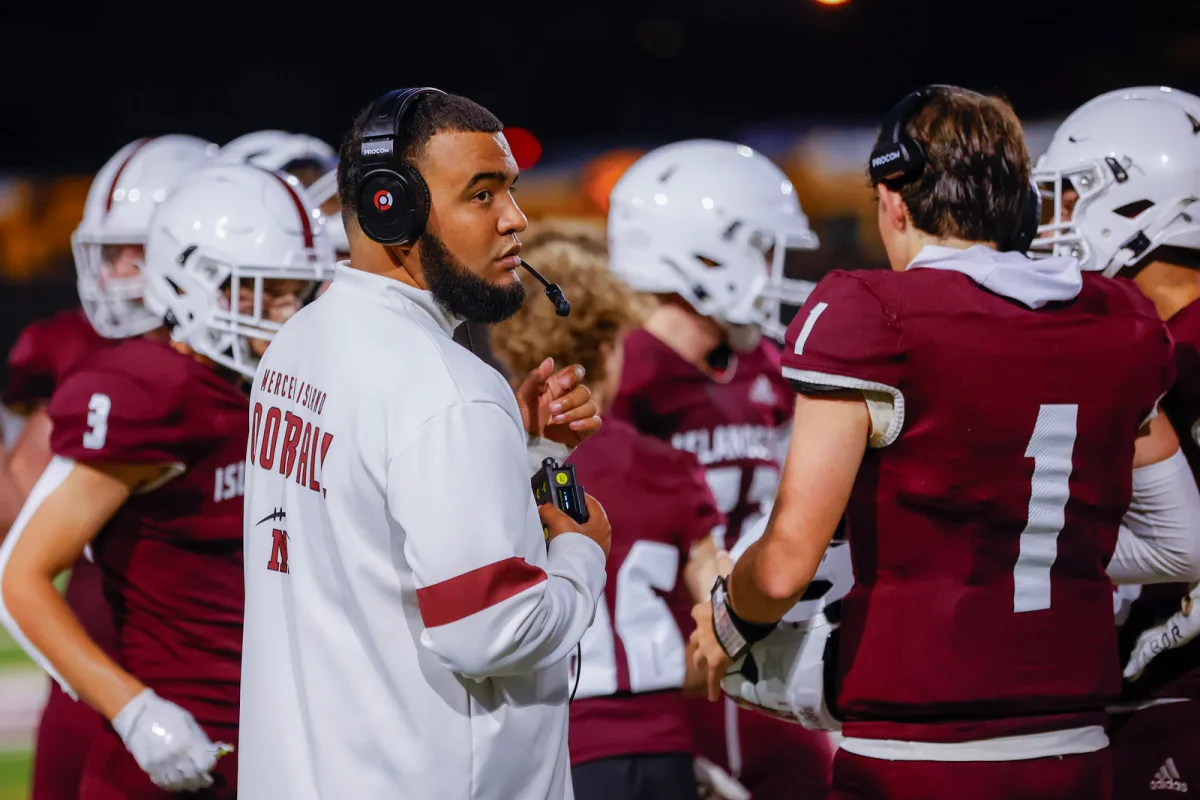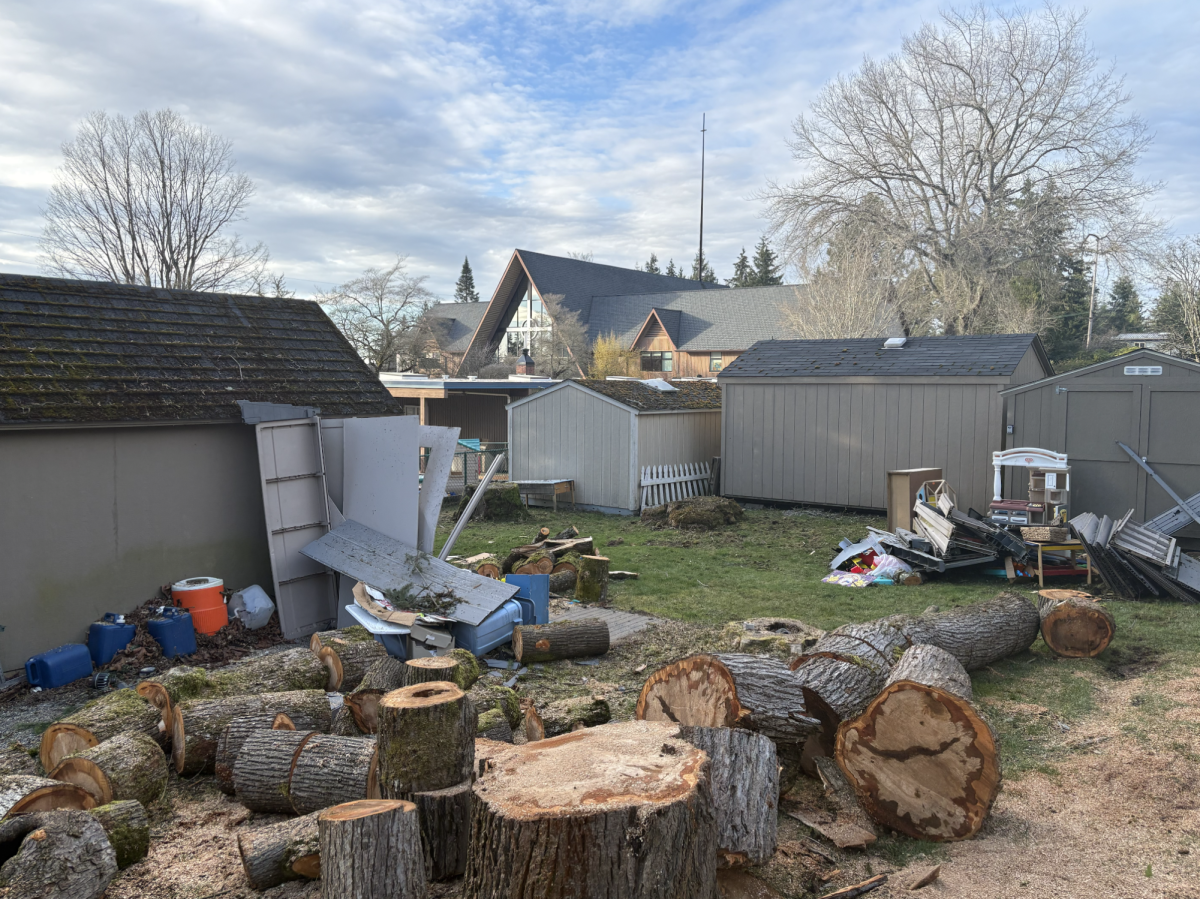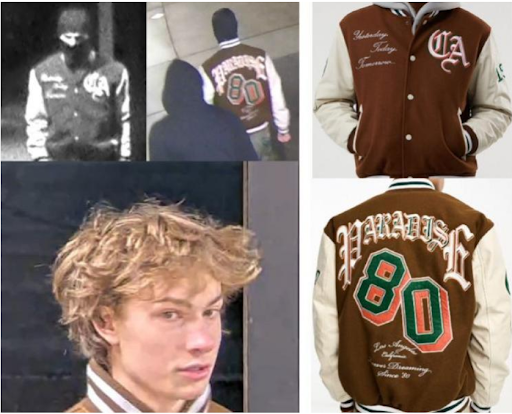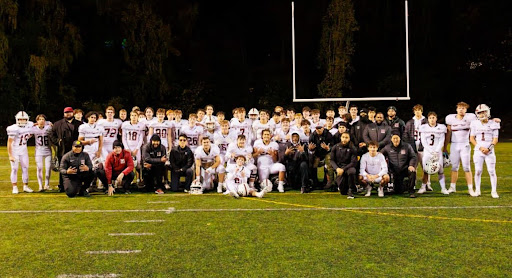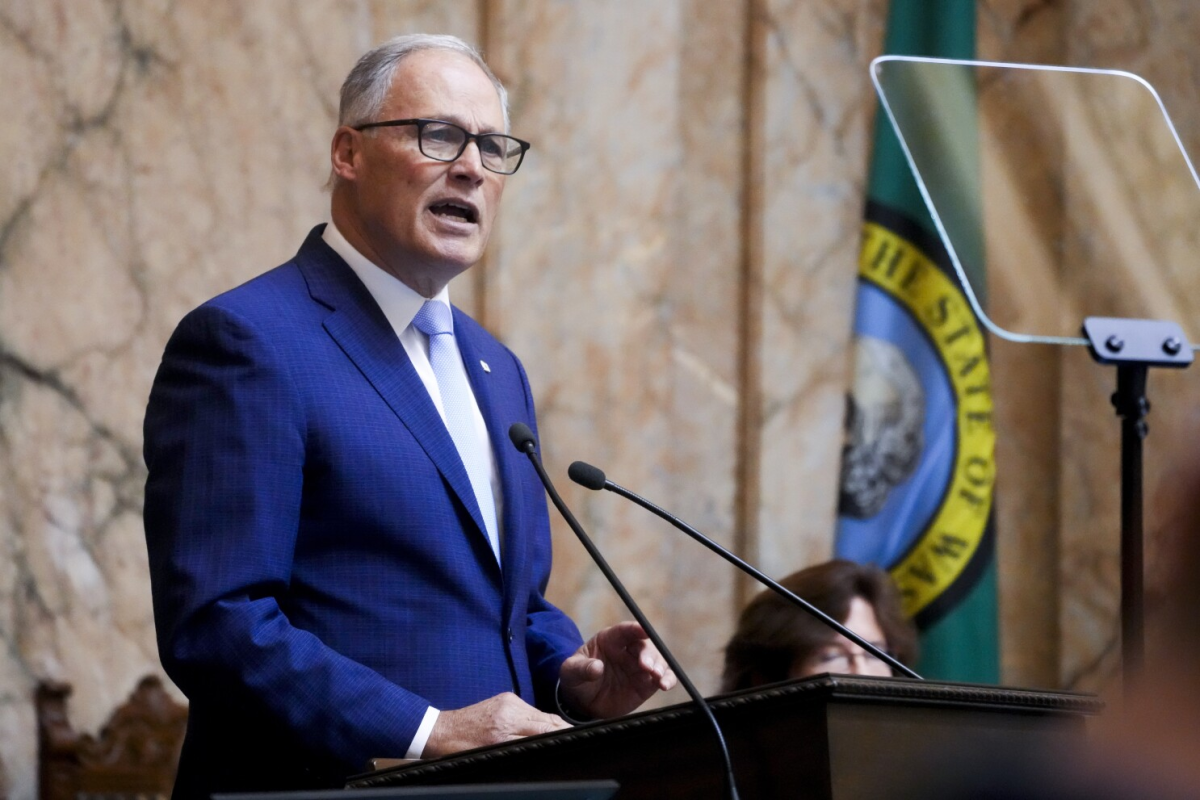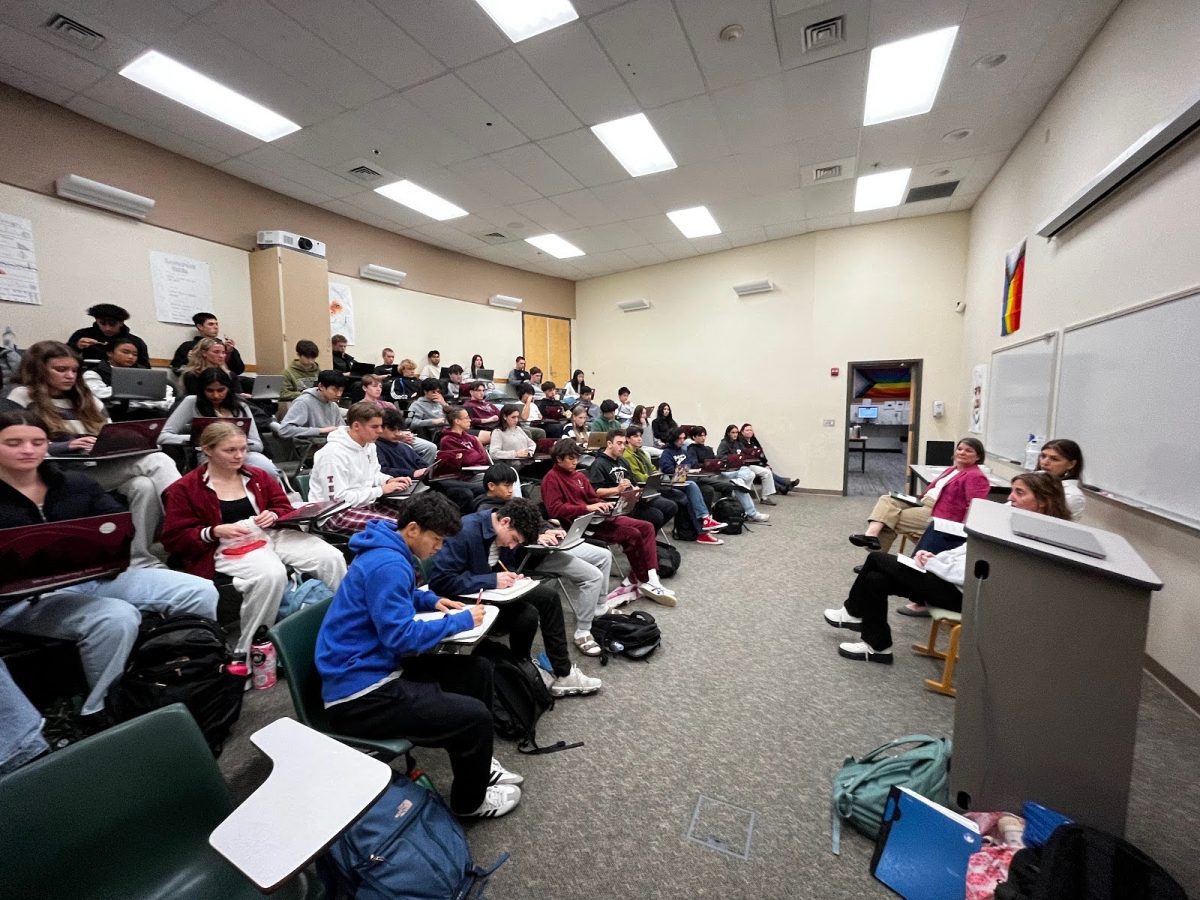In the wake of recent anti-Semitic events in the Mercer Island community, The MIHS Islander reached out to students and teachers to gain a deeper understanding of how these incidents affected MIHS and the community. While each individual had their own perspective, the common thread throughout was a call for unity, not divisiveness; love, not hate; and education, not ignorance.
Elyse Rice, Junior
“When I first found out about it, I was mute for 30 minutes. The first thing I did was just sit in my car. I couldn’t drive, I couldn’t do anything. I just had to sit there and try to process what I was just told. I never thought that this would happen in our school. I’ve always been really open about being Jewish and suddenly that was compromised.
I called my mom, she didn’t pick up. I called my grandma, and she didn’t pick up. I called Amanda and she picked up and I just started bawling, I couldn’t even say what happened, I couldn’t say anything without crying. She asked ‘what’s wrong? What’s the thing?’ and she told me ‘but no one’s going to hurt you’ but even if you’re not being physically hurt, I’m still emotionally unsafe in an environment where I’ve felt like I’ve been safe my whole life.
I was on calls all afternoon, I couldn’t do my homework, I couldn’t focus, I couldn’t do anything, and I’m sure other people feel the same way. I’ve spoken to others, and I know they’ve had similar experiences.
I remember prepping myself for Tuesday, walking in to school and telling myself ‘okay, you’ve got this, you can do this. I know today’s going to be really hard, but you can do it.’ The second I walked into school, I felt like every single anti-Semitic thing that anyone has ever said to me just kept playing over and over and over again in my head. I couldn’t get it out, I felt like suddenly everything turned black and white and we were just backtracked 40 years. I felt like everything was just done.
Honestly, I understand the anger because I feel it too, but there is a point where you have to understand that these are also people too. From person to person, people make mistakes, horrible mistakes, and do things that, whether they knew the meaning behind it, they did it, and it’s going to make some people think otherwise, and images are going to warp people’s perceptions of what’s really going on.
I’m really disappointed in the way that some people have been retaliating because it puts the Jewish community in a negative light. The extremes are what people remember and the extremes are what people see. I don’t think it’s fair for the Jewish community to be categorized as people who are sending death threats to people who threatened them in the first place. That’s not who we are as a community. The majority of the Jewish community understands, and is just really, really hurt and deeply offended and some people have really extreme reactions to that.
I think that’s something to understand, and I know that we have to keep in mind that these are kids. They’re 13, 14, 15, no matter how old you are, it’s not fair to be targeted by adults in the harsh ways that have been occuring. It makes me sad because now I’m at a conflict where I feel really horrible that now it’s getting so extreme and they’re receiving death threats, and it makes me super upset, but they also need to understand that that’s not okay. I just hate that it goes that far for them to know that it’s not okay and something like this has to happen for everyone else to see that it’s not okay. That shouldn’t be the point.
Moving forward, I think that it’s really important that we move forward with a sense of unity and not division, no matter how divided our community is right now, no matter how many differing opinions we have, we have to move forward together. That’s something that everyone needs to understand. We have to put everything aside for a second and remember that we are a community and we’re supposed to love one another, and right now everyone is acting out of hate. That’s what’s the most upsetting. Moving forward, there are going to be things that we do as a community to heal, which is the most important thing that we can do.”
Brian Park, Senior
“Unfortunately, especially in our Mercer Island bubble, I think people lose perspective and forget that their words and actions have real consequences that affect real people. This tragic case of anti-Semitism is hard proof that we as community need more education on the holocaust and other genocides. We need to cement the idea that hate has no place in our school.”
At the same time, I hope that the anger, frustration, and pain of the student body and the broader Mercer Island Community can be transformed into love and forgiveness; I hope that this negative experience can blossom into crucially needed dialogue about empathy and respect. And I’ve already seen some amazing peers, Jewish and non-Jewish, address the ignorance and bigotry with grace and dignity. Peers have helped order 40 blue sharpies to draw blue hearts, there are talks of bringing speakers, and much more.”
Kati McConn, English Teacher
“I was, and still am, shocked, disappointed, frustrated, and a host of other unpleasant feelings. I knew that if I was feeling this way, my students would be feeling like this and more. Whenever anything happens in our world, I try to address it my classroom. I stop, make it work in our lesson for the day, and spend some time giving my class the opportunity to share their reactions, feelings, and thoughts. I would like our community to feel comfortable addressing issues whenever a group within our school feels attacked, hated, or discriminated against. Most importantly, I want to work towards restoring our school and focus on healing not division and isolating any members of our community.”
Sadie Wolf, Freshman
“When I heard about it, I was really upset just because I was being targeted and a group of people I am a part of was being targeted. I found it very offensive and hurtful that people make jokes about the Holocaust. But also what kind of developed after the fact, which I wasn’t really expecting, is the backlash: people on Facebook, a lot of parents and also people just saying everyone is overreacting. I feel like that was the worst part of it for me, just hearing people say ‘it’s not even a big deal, people make jokes like that all the time.'”
Jacob Moore, Senior
“Obviously it made me sad seeing hate come up in different ways. It’s really unfortunate. I don’t know the kids so it’s hard for me to say. Obviously you want to assume that it was just a really bad mistake. It’s kind of unforgivable, but at the same time I think what the school should do is really focus on teaching, which I think is the biggest thing.
In class the other day, Mr. Twombley was talking about how we only get [in-depth] Holocaust education in tenth grade for the first time, and I think the kids were freshman, so maybe that’s an example of why we should start earlier in middle school. I know at home I talked about [the Holocaust] and I understand how big of a deal things like that are, but maybe [the students involved] didn’t for whatever reason. Whether they’re making a joke or whatever, it’s still really not acceptable.
There was a lot of really aggressive responses [on Facebook] and personally I think that’s totally the wrong way to go about all of this. I know it sounds kind of cheesy, but I think love is the best way to go about everything. Obviously, whether they were being hateful or not, I don’t know. But it comes across that way to Jewish students and people that were affected by the Holocaust.”
Laurie Schwartzberg, Math Teacher
“The MI community is grieving right now. And we face our grief differently: with anger or with sorrow or with disbelief. We should not however face it with apathy or with the denial that we can always be better. We can grow from this. Because we have a human responsibility to be kind and honor each other. Acts of kindness, even through our most distressing moments, bring us together. It is unfortunate that this happened in our community. But it did. It is how we respond and grow that will be a testament of who we are as Islanders.”
Lila Shroff, Junior
“For me, the events of the past couple days have been very surprising and disappointing in a couple of different ways. The incident that occurred, obviously was really painful for our community, it was unexpected.
To me, there are a couple of different things that need to be recognized. The first is that not only was the incident itself concerning, but to me the response of the community. Although an amazing amount of people have spoken out and condemned what has happened and expressed their concerns, there are a lot of other people who have treated this really lightly and played it off as something trivial and something that doesn’t deserve much attention.
I think the issue is that this is part of a bigger trend. I’m not sure the exact figures, but anti-Semitic acts have been rising significantly in Europe, in Germany, in France, there’s been a surge, in the United States as well. I think this speaks to a much larger issue that’s going on at an international scale and frankly it’s upsetting to see that these are things you just don’t expect to happen and this trend as a whole makes me stop and think about ‘what direction are we headed in?’ and what does our generation want for itself, where do we see ourselves twenty years from now.”
Creighton Laughary, English Teacher
“I can see that kids are hurting and frustrated. I can see that it causes divisions and I don’t like that in a school community. So, I guess it’s just a lot of frustration and a sense of powerlessness. I don’t think I can solve it. I don’t think any of us can solve the problem of anti-Semitism right now, especially on a cultural level. We can eventually have the conversations in class maybe pulling together all of the conversations that are happening between students and around dinner tables and stuff, and hope to heal our community a little bit. And then maybe members of our community go out into the world and start to be those voices for that larger healing.
As a teacher, it also kind of takes me back, like ‘Ok, do we do enough?’ I think we talk a lot in English classes about characters or authors that deal with stereotypes or deal with sort of being misrepresented. And so, to me I’m also a little baffled. How do these ideas persist in this century? But, I’m not denying that they’re out there and that they happen and they’re hurtful.
There’s also a sense of bewilderment. Our nation has a history of discrimination and making certain groups live under the stigma of feeling other or less than. I think that that’s part of the mission of public education in a free society is to help educate people about equality and about how to bring everyone to a greater level of equality.
I mean that word heal. When there’s an injury, often times there’s a scar. So there is healing, but then there is always a reminder of that. I think what we’re doing in the English department and in the school is that we are always looking at our practice and saying what we do. Are we doing enough to confront these issues and have the conversations in our classroom? Not just as a response, but going forward on an ongoing basis. So I think that will be part of it. You know, whether we are talking about race, gender, or immigrant status, or whatever, I think that will be the response and part of the healing.”
Taleah Levin, Senior
“Anti-Semitism is affecting our generation more and more, due to ignorant, insensitive and uneducated people, and that needs to stop. Every year we are reminded of the Holocaust considering there is a Holocaust Remembrance Day and practically every year we speak about the hatred that Jews have experienced in some class at school. Anti-Semitism doesn’t stop unless people stand up and people are called out for what they do, and if you do not believe anti-Semitism is still around then open your eyes and your ears and do something to stop it, because being a bystander is just as wrong as instigating a hateful action, seeing something that is incorrect and sitting idly by while people are disrespected does as much harm as doing the act itself. When we can stand up, help out one another and not act out of utter stupidity and ignorance, maybe something can change. Because ultimately love comes before hate and is strong enough to bring an end to anti-Semitism.”
Boaz Malakoff, Junior
“When I first saw the picture I was not really angry, I was just more in shock. I just couldn’t really believe that people were that ignorant and that…I don’t want to say uneducated, but uneducated about what Anti-Semitism is and what those gestures mean. I think going forward it’s more important to educate everybody in general about Anti-Semitism, about the Holocaust, about the history of hatred toward Jews and just in general.
Also understand that people will be ignorant and it’s not going to make things better to get angry and to get aggressive. Even though everyone’s angry and everyone’s upset, it’s important to also respect everyone and especially the people who made those gestures. I think it’s important to understand that they too are human. They did this horrible, horrible thing, and I think the best way to go forward is to move forward with an educational mindset because if we continue to attack them, they will truly walk away with a hateful mindset toward Jews and toward minority groups. If they walk away with a hateful mindset, then what the hell is the point of doing anything in the first place.”
Chris Twombley, English Teacher
“I’ve made a lot of mistakes in my life. The times where I’ve had the opportunity to learn and grow and be forgiven for my mistakes have been the most important for me because they have allowed me to move on and be a better human being. And so, my initial reaction to seeing the photographs, obviously were ones of disgust because I think that image is hurtful and that history is hurtful, not only for Jewish people, but for all the people who suffered in the Holocaust and for our world as a reminder for human hatred and inhumanity.
But I have to be honest too. My heart also went out to those young people because I knew immediately when I saw that picture their lives were never going to be the same. And maybe this community will never be the same because of that. And that can be a positive thing as well. I worried about those young people because a lot of this has come out that they were going to receive death threats or that there were going to be shunned by their classmates. While I understand why their classmates and the community might be angry, and rightly so, I don’t think that shunning people or giving them death threats or threatening violence against them advances the cause at all. Putting more hate in the world or meeting hate with hate is not a solution to hate.
And so, I’ve been telling my classes and my students that I’ve grown the most when I’ve been giving the opportunity to recognize that I’ve hurt someone and been given an opportunity to change. And I hope this community can do that. And I hope our school can do that. And I hope this community will. But judging from what I’ve read so far, that might take a little longer than I thought it would.
I haven’t walked in the shoes of a Jewish kid. I don’t know that experience or how I would respond. I think I just have to see it as a teacher who wants all of his students to feel safe and welcomed and honored and respected and to be treated fairly. And it just makes me sad that we are at a place where there is so much divisiveness beyond the normal ‘high school is hard’ divisiveness.”
Kayla Levin, Freshman
“When I heard about it, I was honestly disgusted at what people in my grade and people that I’ve known for years thought would be in any way funny or okay. I think that it’s super disappointing what people have been saying and reacting to the Jewish community’s reaction. I think the Facebook [comments], which are a little bit too much and that has gotten out of hand. But I think our community has done a good job expressing how we feel and why it’s wrong. I think these people [involved], the best thing that they can do is educate themselves. I think they’ve been doing a good job of trying to apologize but it is not an excuse for what they have done.”
Ben Roe, Junior
“I had two initial reactions. I was disappointed that high school students in our community would do something like this, but then again I felt like it was kind of inevitable with all the stuff going on in California and the lack of maturity in our students. Obviously, the students involved with this should take it as a learning opportunity and realize that subjects sensitive like racism and anti-Semitism shouldn’t be something that they should joke about or portray in social media. I think that not only the students that were involved will learn this but all students who witnessed it and in our school community should learn from this as well.”
Kate Francke, Sophomore
“When I first saw the images I was startled and confused. I’m not Jewish, so I can’t imagine how terrible it must feel to know that your ancestors endured or died during a horrific event that is now being joked about. My question now, though, is how the Mercer Island community can move forward and prevent similar events from happening. Whether it be race, religion, sexuality, or gender, it feels as if we are more comfortable sweeping touchy topics under the rug. Hopefully these images will force us to confront situations rather than look away.”
Kelsey Cochran, Spanish Teacher
“When I saw that photograph, I was just very shocked. I truly didn’t think that would happen, for the simple stupidity of posting something so controversial to social media. What I feel personally, what I’ve been saying to my classes is that I’m so shocked that that would emerge from the Mercer Island community because I grew up here and just by coincidence my best friends at every step of the way were Jewish and I think that’s common.
The Jewish community here is so large that all of us either are members of it or interact with Jewish people and have Jewish friends. I would spend Shabbat at friends’ houses on Friday nights. Two of my friends when I was growing up had grandparents who were Holocaust survivors who lived on the Island who I would see. So, first of all I felt that I didn’t even understand anti-Semitism. I just didn’t know where that was coming from when I was growing up, but I obviously knew about the Holocaust and all of that.
I’m shocked to see that kind of imagery emerging from the student body who is so close to the Jewish community. I think that another thing that I have observed this week is that I think anti-Semitism is complex and complicated. Posing like Hitler is not complicated, that’s obviously wrong, but I think that we need to be vigilant and we need to be aware and we need to be informed about what is the language of anti-Semitism and what it looks like. We have a special responsibility being members of this community to know it when we see it and to condemn it and to not propagate it and accept it.
I think also as a Spanish teacher, there are students in this community who have Sephardic origins and whose grandparents speak Ladino and that’s because the Jews were expelled from Spain 500 years ago. So we just need to understand the context of this historically oppressed people and know what it means to have Jewish people present in our community.
I don’t know what students are consuming on social media,. I don’t know what they are hearing or getting, I just feel a little bit in the dark. I have my limited perspective of being informed by the school administration that this incident happened, then that sparks me to talk to my students. I obviously think [the death threats] are horrible, and that’s not the correct way to respond. On the one hand, I don’t condone that, but I think that that happens. When we exercise our right to free speech we need to be aware of how people might respond.”
Ava Schwartz, Freshman
“It made me feel really isolated and a lot of other people feel isolated as well. It’s a really big thing to joke about and it’s really hurtful and offensive to Jewish people and a lot of other groups too.”
David Wolf, Sophomore
“After the first incident, I wasn’t too upset. I knew that this was something that happened before and I knew that the teachers would be able to tackle it. However, later that day or later in the week it kind of blew up over social media. The part that really got to me was how clear it was that so many people didn’t know enough or were very ignorant that they couldn’t handle it in a sophisticated way. With things that keep on happening, it serves as a wake up call that this is really a prevalent problem. I am trying to steer away from anger about the whole thing and just move towards educating people so it never happens again.”
Nate Wenzel, Junior
“It took me by surprise seeing something like that because you see that in the news all the time, like the California incident, and you think that it’s only there and can’t happen here, but it did. It’s unacceptable but I understand kids make mistakes. As much as that is unacceptable and it is sad to see, seeing that Facebook post was hard to see too. I thought the high school did really well with what happened and how they acted on it, but also with the parents I think they could have done a better job with actually addressing the problem and not showing more hate toward other parents.
Instead, we should have united. We need more education to understand what really happens when you do that and letting people know the history behind it. Also having the [blue] hearts on our hands to bring people together to let them know everyone is united. In the future, as we move farther away from what happened, we need to keep educating ourselves and future generations on what really happened.”
Patty Weston, Science Teacher
“I was deeply saddened by the events of last week. As a teacher, I saw my students and colleagues struggling to process news of the event itself, the social media impact, and the impacts on each other of previous grievances and anti-semitic comments that had been left unaddressed between students in the past. Last week, it was a challenge for many to simply come to school, and many of my colleague teachers led difficult discussions about the events. This event triggered significant amounts of pain and conflict, as well as opening many students’ minds. I believe that my colleagues and my students are all trying to do what is best for all of our students, and the community at large. The students directly involved in making the video made bad choices. However, I would not be an educator if I didn’t believe that people can make amends, learn, and grow, if they are allowed to. I understand there has been a huge amount of time and effort spent, by adults and students involved and affected, in dialogue to help our community deal with the entire issue of antisemitism, and about the ignorance that lead to the posting and reposting of the hurtful acts and images. A time of self-reflection and calm conversation, a time to really achieve better understanding and appreciation of each other and our cultures and history, would be the best outcome I can imagine right now.
My hope is that we as a school and larger community realize now that gestures, symbols and words of hateful ideologies can have a deeply painful effect. Freedom of speech comes with choice and responsibility. Ignorance can lead to pain, judgement, and terrible consequences.
I also know that many students feel unwelcome in high schools around this country, for a variety of reasons. It is not the Jewish students’ responsibility to educate the community at large about anti-Semitism. Libraries of books and numerous documentaries have been made about history that is relevant to racial, ethnic, and religious hatred, particularly antisemitism. Antisemitism has a global history. It didn’t start with WWII, and it hasn’t ended. It is my responsibility, as an educator, to listen to all of my students to make our school a more welcoming place.
I have empathy for the Jewish community, particularly on MI, which has such a vibrant culture and positive influence on the island and surrounding region. I also have empathy for students who made terrible and regrettable decisions. We can choose now to use this time productively to understand and educate, and help our neighbors, colleagues, and friends heal. That can lead to a stronger, more welcoming and healthier school community.
I also want to say how much I appreciate our school board, superintendent, and school administrators. They work seemingly tirelessly, to help all students stay safe and able to learn. Our students, families and communities face a large number of potentially harmful situations, and many divisive political and economic issues. All of our administrators, particularly Principal Puckett, have spent many hours participating in and facilitating productive community discussions, including a staff meeting where a representative of the Anti-defamation League educated many of my colleagues and I about the history and current effects of anti-semitism and hate speech.
My advice to everyone who is interested in working past this and preventing future similar events, is that we keep sharing honestly and listening compassionately. Strive to be welcoming, generous, and compassionate to others, as well as to yourself. Protect yourself from harm, and take time to reflect and heal. Know that allies and friends are abundant, that people can change their views and behaviors after reflection, and that thoughtful actions to repair relationships are welcome. We are all learning. I do not believe that community divisions will be solved by social media or more publicity, but we can come together through open and honest in-person dialogue that pursues understanding.”


